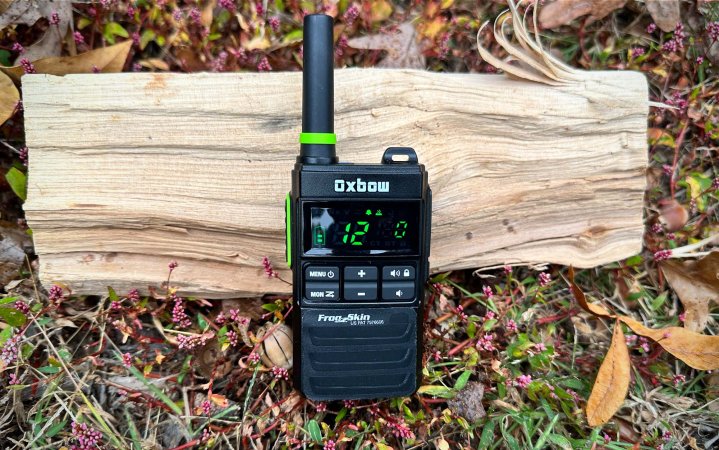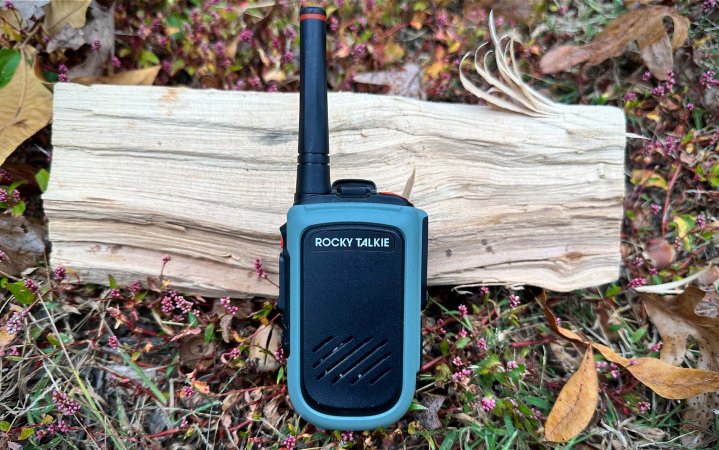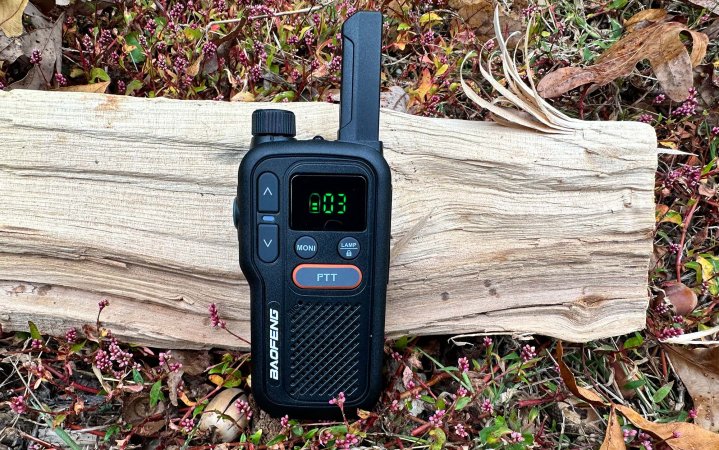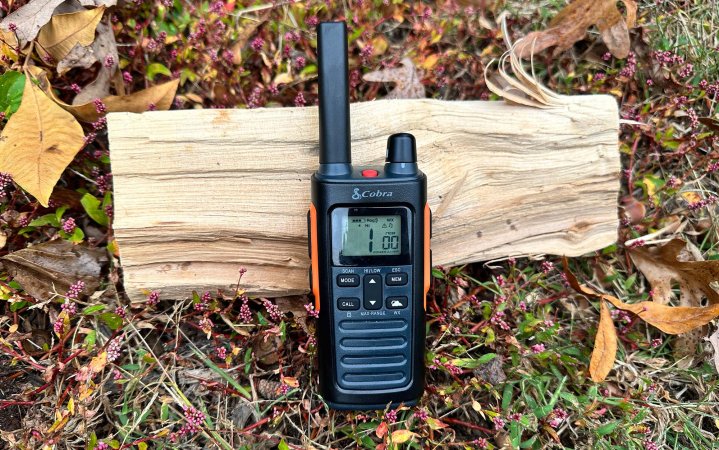We may earn revenue from the products available on this page and participate in affiliate programs. Learn More ›
Cell phones can do a lot, but making a phone call or sending a text isn’t always the most efficient means of communication. For example, when you’re driving an ATV, paddling a kayak, or needing to check in with someone out of cell service quickly, that’s the niche walkie talkies fill.
You just hit a button and talk into them, so they’re perfect for fast, efficient communication. For extra convenience, many don’t even require you to push a button. While their basic operation is the same, their features and capabilities vary. That’s why I tested eight popular models and whittled them down to the five best walkie talkies.
How I Tested the Best Walkie Talkies
Photo by Scott Einsmann
I’ve used several of the walkie talkies in the field while testing optics, doing road trip caravans, and kayak fishing with friends. That gave me a good sense of their capabilities, mounting options, and user friendliness. I also compared the range and audio clarity of each of the walkie talkies with the help of OL staff writer Laura Lancaster. I jetted off on my QuietKat e-bike carrying eight walkie talkies while Lancaster listened to their pairs. I stopped at 0.5-mile increments in my hilly, wooded neighborhood and checked in on each radio. Lancaster rated the clarity of my transmissions on a 1 to 5 scale (5 being “loud and clear” and 1 being “come again?”)
Each location where I stopped to transmit had various levels of obstructions. For example, from the top of a hill with just a few trees in the way to several hills, houses, and trees blocking the signal. Nearly all the walkies performed when there were few obstructions, but only a handful could transmit in the presence of signal blockers. In the reviews, I’ll reference how well the walkie talkies did at the extreme end of obstructions.
The Best Walkie Talkies: Reviews & Recommendations
Best Overall: Oxbow Gear Renegade 2.0
Pros
- Clear transmissions
- Excellent features for a wide range of outdoor uses
Cons
- Not the best range in the test
Specs
Radio Service: FRS (462-467MHz)
Power: 2 watts
Range: Up to 25 miles (1 to 5 miles with trees and hills present)
Water Resistant: IP56 (rain and snowproof)
Weight: 6.3 ounces
Price: $145 each
Features
Universal shoulder strap mount is designed to securely fit any backpack shoulder strap
22 channels and 121 privacy codes
Battery Life: 36 hours
Compatible with GoPro mounts
Fully sealed PTT button won’t freeze up when wet and cold

Photo by Scott Einsmann
The Oxbow Gear Renegade is popular with snowmobile enthusiasts, but its rugged build and good feature set make it ideal for any outdoor pursuit. In testing, it had the best sound quality of all the units tested, and Lancaster could easily hear what I was saying. It didn’t have the best range in my hilly, wooded area, and its limit with those obstructions was around .5 mile as the crow flies. The Rocky Talkie 5 Watt made it a few hundred yards farther. I liked the Oxbow’s small size and light weight in the field. The battery easily lasts 24 hours with moderate use, which is plenty for a three-day trip without recharging. The volume, even at the lowest setting, is about the level of a normal conversation — not whisper quiet — so I wouldn’t recommend hunters leave their radios on while waiting for a shot opportunity. At the highest level it’s loud, which is great if you need to hear the walkie over an engine or other background noise.

Photo by Scott Einsmann
The Renegade’s hands-free, voice-activation works very well. So if you’re riding a bike, reeling in a fish, or driving a snow machine, you can communicate without hitting the push-to-talk button. It works best when your mouth is close to the mic, so clipping the Oxbow high up on a shoulder strap and turning your head into the walkie is a good option. You can also use a microphone plugged into the mic jack.
For most people, the Oxbow Gear Renegage’s range will be sufficient and its size is ideal for carrying in the field. If you need more range or more waterproofness, the Rocky Talkie 5 Watt is the way to go. If you want true hands-free communication, consider the Renegade X, which has Bluetooth connectivity.
Best Long Range Walkie Talkie: Rocky Talkie 5 Watt
Pros
- Excellent range despite obstacles and topography
- Waterproof
- Durable
- Easy to use
Cons
- Heavy
- Voice transmission isn’t crystal clear
Specs
Radio Service: GMRS (USA only); requires a license
Power: 5 watts
Range: 35 miles (line of sight), 1 to 8 miles (mountains), 0.5 to 5 miles (forest and hills), 0.5 to 3 miles (rivers), 1.5 miles (city)
Waterproofing: IP67 (waterproof up to 1 meter submersion)
Operating Temperature: -20 to 120 degrees
Weight: 9.1 ounces
Price: $180 each
Features
Steel gator clip or carabiner loop attachment
22 channels + 8 repeater channels
Battery Life: 4 to 6 days
M3 waterproof headset connector
Other Features: 21 privacy codes, channel lock, high/low power modes, scan mode, roger beep, dual channel watch, NOAA weather channels, NOAA emergency alert monitoring GMRS repeater capable
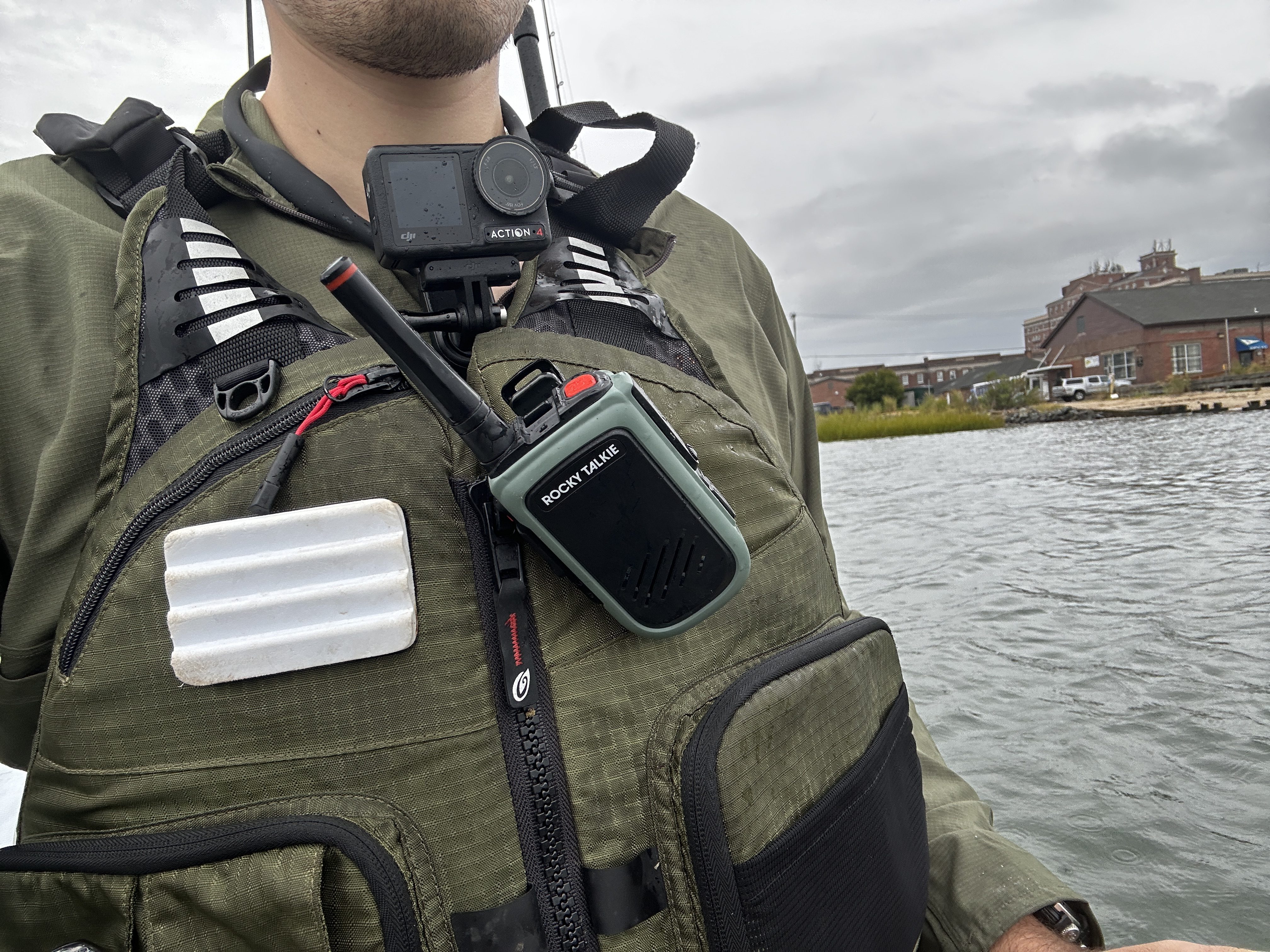
Photo by Scott Einsmann
I’ve been using the Rocky Talkie 5 Watt primarily for kayak fishing where it’s ideal for staying in communication with my friends as we drift apart. It’s been in heavy downpours and splashed a lot throughout use, and I’ve never had a glitch. If you’re not a techy person you’ll find it very easy to use, which is excellent for when you hand one to a friend without much instruction. On the water, I’ve checked in with my fishing partner when we were over a mile away. In my long-range testing in a hilly, obstruction-filled location, the max range was around .6 miles — the best I tested. It’s long range is due to the fact that it uses GMRS and its 5 watt power. The catch is that you’ll need to get a license from the FCC. The process is very simple and only costs $35. In my opinion it’s worth doing if you need a walkie that’s capable of reaching long distances or operate in the presence of obstructions. Rocky Talkie has a helpful guide on the license process, here.
Another great feature for kayak anglers, or anyone who recreates during unpredictable weather, is the 5 Watt gets NOAA weather and emergency alert channels.

Photo by Scott Einsmann
Its true waterproofness makes it unique among walkie talkies, which typically only have a water resistant rating. If you drop the Rocky Talkie 5 Watt in shallow water, it will shrug off its bath and keep on working.
There’s a lot to like about the Rocky Talkie 5 Watt. But it’s also quite heavy compared to other options, and the audio quality wasn’t as clear as some of the other walkies tested.
If you like the Rocky Talkie, but want something lighter, check out their Mountain Radio, which is 2.5 ounces lighter and $70 cheaper. Just keep in mind that it will just be splashproof and it won’t have as long of a range as the 5 Watt.
Best Value: BAOFENG GT-18
Pros
- Clear transmission
- Easy to use
- Light
Specs
Radio Service: FRS
Range: 0.5 miles (city), 1 to 2 miles (rural areas), and 3 miles (open spaces)
Operating Temperature: 32 to 104 degrees
Weight: 4.7 ounces
Price: $35 for three
Key Features
Belt clip and lanyard
22 channels
Battery Life: 3 days
Dual PTT buttons
Flashlight
If you need an inexpensive walkie talkie to keep tabs on family while camping, hunting, hiking, or biking, the Baofeng GT-18 is the best option I’ve tested. They’re affordable at $35 for three and far outperformed that price point in my testing. The GT-18 had the same range as the Oxbow, but the transmission wasn’t as clear as the 12 times more expensive walkie at that distance. Inside 0.5 mile it was crystal clear.

Photo by Scott Einsmann
The GT-18 is also very lightweight and small, so it will slip into a pocket and won’t be a burden on the trail. The button layout is very simple: there’s an up and down arrow to select your channel, a dial for the volume and to turn the walkie on, and two push-to-talk buttons. If you’re handing the GT-18 to a kid you can use the lock feature so they don’t accidentally change the channel setting. I also like that the display clearly shows the battery level and channel — all the info you need without any clutter.
Best for Emergencies: Cobra RX680
Pros
- Water resistant and durable
- Gets emergency alerts
- Good range in testing
- Volume adjustment gets very low, which is great for hunting
Specs
Radio Service: VHF
Range: 38 miles (line of sight)
Waterproofing: IPX4 (splash proof)
Price: $90 (two pack)
Key Features
22 standard FRS channels, 38 pre-programmed channel/privacy code combinations, NOAA weather channels
Voice-activated transmissions
Flashlight
The Cobra RX680 is versatile and reasonably priced. It would be a great option for hunting, fishing, hiking, camping, and to have on hand in case of emergencies. The features that make it great for emergencies are its hot button for emergency alerts/NOAA weather and a flashlight that’s actually quite bright. The flashlight is comparable to a cell phone flashlight, so bright enough to find your way in a dark room or illuminate close up objects outdoors.

Photo by Scott Einsmann
Aside from those handy features, the RX680 works very well as a walkie talkie and equaled the Oxbow for range in my test. The volume adjustment goes from a whisper to a loudspeaker, making it great for hunting or motorsports. You don’t have to press a lock button to prevent accidental channel changes, but you have to first hit the “mode” button to change the channel.
Read Next: Best Emergency Radios
Best Walkie Talkie for Kids: Moico
Pros
- Very light weight
- Not complicated
- Excellent clarity
Specs
Radio Service: FRS
Price: $20 for a pair
Key Features
22 channels
Comes in orange, blue, green, yellow, and black
Flashlight
The Moico is the lightest walkie talkie I tested so it’ll be easy for young kids to carry. It also comes in a range of colors, so there’s a good chance their favorite is available. But, the reason why this is the best walkie talkie for kids is far more practical.
My one-year-old helped durability test these walkie talkies, and if you have older kids, there’s no doubt they’ll do an even better job testing their durability. No matter how durable a walkie is, there’s always a good chance that a child will lose it. If that does happen with the Moico, you’ll only be out $10.
A cheap walkie can’t be that good right? During testing, I was very surprised at how well the Moico performed with a good range of about .3 miles with obstructions. The voice clarity was excellent as well.
The Moico has seriously good performance at a toy walkie talkie price. That’s why it’s my pick for the best option for kids. You get the practicality of having reliable communication while being affordable for the eventuality of Murphy’s law.
How to Choose the Best Walkie Talkie for You

Radio Frequencies: FRS vs GMRS
FRS stands for Family Radio Service and is the most common for walkie talkies. It doesn’t require a license and it uses frequencies in the UHF band. It is considered a short distance communication service and can be used in the U.S., Mexico, and Canada.
GMRS stands for General Mobile Radio Service and it requires a license from the FCC. The license costs $35 and is a simple process for everyone over the age of 18. GMRS radios have more range than a FRS.
Channels
Walkie talkie channels and sub-channels (privacy codes) allow you to find a private line of communication. The more channels available means the more options you’ll have to find one that another group isn’t using. This is especially useful in populated areas where UHF channels are frequently used.
Waterproofness
A good walkie talkie is going to be splashproof so it can withstand rain and snow. Few can take a full submersion in water so keep that in mind if you’re buying a walkie for water sports.
Obstructions and Range
Obstructions like trees, houses, and topography will greatly affect the range of a walkie talkie. Keep that in mind if you recreate in areas with a lot of those types of obstacles and consider a longer range walkie like the Rocky Talkie 5 Watt.
Final Thoughts on the Best Walkie Talkies
We live in a time when we’re all just a text away, but when you need fast, efficient communication the walkie talkie is still king. They’ll work when there’s not a cell tower for miles and can keep you in touch with your group over long distances. If you want one of the best walkie talkies for your camp or home, the options on this list will serve you well.

